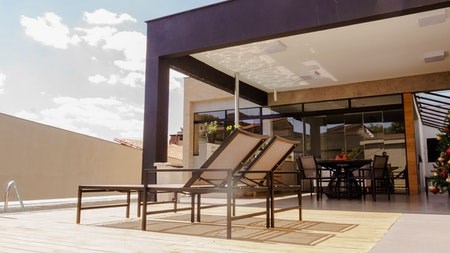Looking at the glossy photos of lush lawns on the pages of garden magazines, you may think the look is unattainable. But with the right advice and the best equipment, you can also make these dream lawns a reality in your garden.
With summer on the doorstep, this is the time to get out in the sun and start your summer lawn care regime.
Rolux chief executive, Stuart Williams, shares some tips on how to make sure your lawn is at its best this summer.
Dead material
Scarifying the lawn using a scarifier or a solid but affordable rake removes old, dead grass to make way for new growth. Getting rid of this dead material allows water, air and nutrients to get through to the roots.
Note that scarifying can be carried out on kikuyu and cynodon lawns, which have runners but will damage evergreen, shade-loving lawns that have no runners.
Loosen dead grass with your rake or scarifier. You will often find that renting a scarifier is the most efficient and affordable solution.
Mow your lawn using the lowest height setting on your lawnmower.
Remove the clippings using your rake and add them to your compost heap.
Fresh air
Aeration allows air to get to the grass roots, which aids in drainage, making available all the minerals and nutrients needed for lush growth. It also reduces soil compression and increases the water holding capacity of the soil.
- Aerate your lawn using a spike roller. If the ground is firm, water generously before using the roller to ensure proper aeration.
Dressing
Apply lawn dressing to improve the quality of the soil, level out uneven areas and stimulate the grass to produce new shoots.
Lawn dressing is a mixture of garden soil and a soil enricher, such as compost. It is most often applied in spring and early summer. Depending on your lawn type, the general recommendation is a 1.5cm layer of lawn dressing.
Note that buffalo grass, LM and all cool-season lawns do not tolerate lawn dressing.
Place small heaps of dressing on your lawn and larger heaps where there are small depressions.
Spread the dressing evenly over your lawn, creating a level surface. You can use a smooth roller if your lawn is very uneven, but be careful not to compact the soil underneath.
Feeding
Lawns thrive on fertiliser and water – in addition to lots of TLC - to look their best.
A good general fertiliser for all lawn types is 5:1:5 (36). Apply this fertiliser during the growing season at a rate of 60g/m2 at least once every three months.
Alternatively, use a specialised organic fertiliser for established lawns available at your local garden centre. Repeat this process every four weeks throughout summer.
Remember to water thoroughly after fertilising if it doesn’t rain to avoid burning the lawn.
Watering
According to garden guru Keith Kirsten, most lawns need 20 to 30 mm of water every week. However, soil types differ, and sandy soils dry out more quickly, requiring more frequent watering than heavy loam or clay soils. So during very hot or windy days, most gardens need extra watering.
“It’s important to allow long, deep soaking to encourage roots to develop deeper down where the soil is cooler and where the moisture content remains relatively constant,” says Kirsten.
Mowing
One of the best ways to get your lawn looking its best is by mowing it properly.
Most people tend to cut their lawns short to increase the time between mowings. However, Williams says that cutting it too short can damage and weaken the grass and decrease its resistance to drought.
Adjust your mower blades so that you don’t take off more than a third of the grass length – especially for the first cut in spring or early summer.
Regularly cutting the grass helps thicken up the lawn and keep weeds at bay, so keep mowing. As a general rule, keep kikuyu at a height of 4 - 6cm, finer grasses such as cynodon at 3 - 4cm and shade lawns at a height of 6 - 7cm.
A wide range of petrol and electric mowers and edge trimmers are available to suit all garden sizes and types of lawn.




